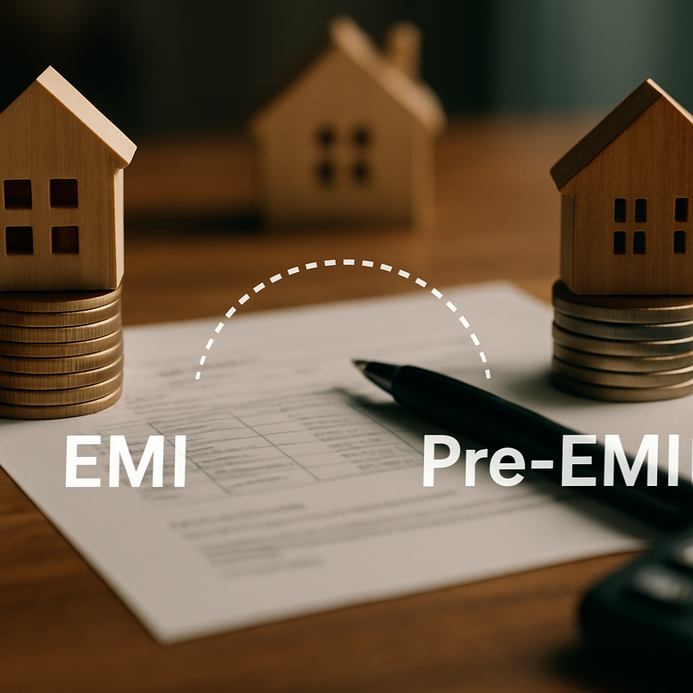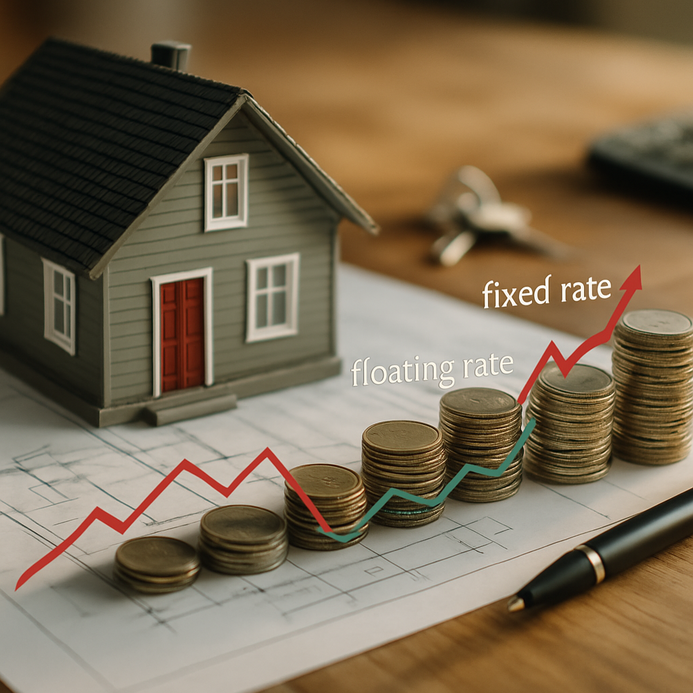Top Mistakes To Avoid When Taking A Home Loan
Understanding Your Credit Score
Your credit score is a big deal when it comes to securing a home loan. It can make or break your chances of approval and definitely affects your interest rates. Higher scores can snag you better deals. Scores generally float between 300 and 850, with 700 being a pretty solid number to aim for.
Now, let’s clear up some common myths. A lot of folks think that checking their own credit will hurt their score. Not true! Checking your own score is a soft inquiry, while lenders’ checks are hard inquiries that might take a small hit on your score.
Want to boost your score? First – check it regularly. Use a trusted online tool. Spot any errors or unpaid bills that could be dragging you down. Paying bills on time and keeping credit utilization low really helps too. Here, check out this handy table to see how scores break down:
| Credit Score Range | Implication |
|---|---|
| 300 – 579 | Poor: High risk, tough to get loans |
| 580 – 669 | Fair: Higher interest rates possible |
| 670 – 739 | Good: Likely better borrowing terms |
| 740 – 799 | Very Good: Great rates and terms available |
| 800 – 850 | Excellent: Best loan conditions |
Use a home loan calculator and an EMI calculator to see how your score affects your monthly payments. Remember, your CIBIL score can really show your reliability as a borrower.
Unveil the 50-50 payment plan
The Importance of Comparing Lenders
Absolutely crucial, comparing lenders when you’re going after a home loan. Use a home loan calculator to gauge their interest rates, loan terms, and monthly payments. The savings can be huge if you dig a little.
Remember, don’t just focus on interest rates. Look at the total mortgage cost since lenders might throw in fees, origination, closing costs, and the like. Take a peek at this table for a clearer view:
| Lender | Interest Rate | Origination Fee | Closing Costs | Monthly Payment (30-yr) |
|---|---|---|---|---|
| Lender A | 3.5% | $1,500 | $2,000 | $1,250 |
| Lender B | 3.75% | $800 | $2,500 | $1,260 |
| Lender C | 3.6% | $1,200 | $1,800 | $1,235 |
See that? Lender C might offer a better overall deal, even with a slightly higher interest than Lender A. That’s where those handy monthly EMI calculators really play a role.
And, hey, don’t forget about service quality! A low-rate means little if the lender isn’t there to guide you.
Need more home loan tips? Look at these articles: Improve CIBIL Score for Home Loans and Understanding LTV Ratio in Home Financing.
Providing Accurate Information: A Must
When applying for a home loan, being accurate is key. Not being truthful can cause serious headaches, like delayed approvals or even outright rejections. Lenders base their decisions on what you provide; mistakes can raise red flags.
Using a home loan calculator can help you nail down what to expect. An accurate estimate boosts your application’s credibility! Using an EMI calculator for home loans will show you how different factors affect what you owe.
Here are a few common blunders to steer clear of:
| Mistake | Consequence |
|---|---|
| Misstating income | Lower loan amount or denied application |
| Failing to declare debts | Poor credit evaluation and trust issues |
| Incorrect property details | Higher rates or rejection |
Double-check everything before submitting. Make sure your bank statements and tax returns line up. For more guidance, swing by this guide.
In short, clarity and honesty on your application go a long way. Want to learn more? Check out articles on speeding up home loan approval and improving your CIBIL score.
Calculating True Costs Beyond the Home Price
A lot of future homeowners miss the crucial costs lurking beneath the surface. You’ve gotta account for things like property taxes, insurance, and maintenance when budgeting. Using a home loan calculator can give you a fuller financial picture beyond just the mortgage.
Using an EMI Calculator for Home Loans
A home loan EMI calculator is super useful for figuring out what you’ll need to pay each month. Just punch in the loan amount, interest rate, and tenure, the calculator will do the rest! Here’s a look at average monthly payments for various loan amounts at a usual interest rate of 7%:
| Loan Amount (₹) | Tenure (Years) | Monthly EMI (₹) |
|---|---|---|
| 20,00,000 | 20 | 17,440 |
| 30,00,000 | 20 | 26,160 |
| 40,00,000 | 20 | 34,880 |
| 50,00,000 | 20 | 43,600 |
Your figures might change based on your credit and lender rules, so checking a few calculators is smart.
When you make your budget, don’t forget costs like:
- Property Taxes: Varies a lot by location.
- Home Insurance: Crucial to protect your investment.
- Maintenance: Always set aside a bit for repairs and upkeep.
Final Thoughts
Using a home loan calculator and understanding EMIs is essential for solid financial planning. Always factor in hidden costs to protect your investment and ensure success down the line. For even more insights into navigating the home loan landscape, check out this article on Resale Property Guidelines and the one about EMI Connections.
Planning for Your Future: Long-term Financial Implications
Making smart mortgage decisions can seriously shape your long-term financial health. A home loan calculator is key here for figuring out what you can afford to borrow.
Understanding Your Long-term Home Loan Costs
When you’re weighing a home loan, it’s vital to consider the total interest you’ll pay over time. A simple breakdown with an EMI calculator can reveal how different borrowing choices impact your finances. Here’s a comparison of loan scenarios over a 30-year stretch:
| Home Price ($) | Down Payment ($) | Interest Rate (%) | Monthly EMI ($) | Total Interest Paid ($) |
|---|---|---|---|---|
| 300,000 | 60,000 | 3.5 | 1,078 | 186,512 |
| 300,000 | 60,000 | 4.5 | 1,520 | 248,966 |
| 300,000 | 60,000 | 5.5 | 1,703 | 287,205 |
Even minor shifts in interest rates can significantly affect total costs. A home loan monthly EMI calculator can help you visualize your options and adjust your budget.
Importance of Strategic Planning
Plus, it’s crucial to consider how your mortgage fits into your overall financial picture. Factoring in things like taxes, insurance, and maintenance helps prevent you from overextending yourself and makes sure your new home stays affordable.
Looking for more on financial planning? Dive into our articles on Forecasting Rental Yield and home loan prepayment strategies.
FAQ
Q: How can I improve my credit score?
A: Regularly check your credit report for errors, pay bills on time, and maintain a low credit utilization ratio.
Q: What should I compare when looking at mortgage lenders?
A: Compare interest rates, loan terms, closing costs, and customer service experiences of various lenders.
Q: What are some common mistakes on a loan application?
A: Common mistakes include misstating income, failing to disclose debts or obligations, and providing incorrect property details.
Q: Why should I calculate true costs beyond just the home price?
A: It’s important to account for additional costs like property taxes, insurance, and maintenance costs to avoid future financial strains.
Q: How does interest rate affect my mortgage over time?
A: A higher interest rate results in higher overall payments throughout the loan tenure, significantly affecting your long-term finances.













